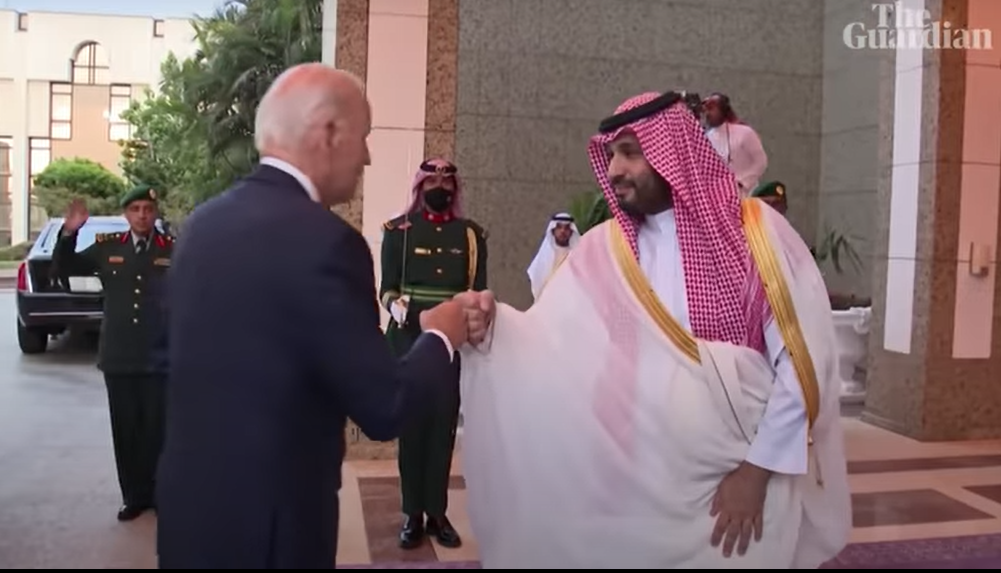President Biden and Saudi Crown Prince Mohammed bin Salman are set to attend the G-20 conference in India next month.
There, they might meet on the sidelines to discuss the tripartite agreement between the US, Saudi Arabia, and Israel.
Recently, Strategic Affairs Minister Ron Dermer visited the US and met with Foreign Minister Tony Blinken to deliberate on the agreement’s details.
Subsequently, the American Foreign Minister engaged in a phone conversation with his Saudi counterpart.
Meanwhile, Saudi Arabia has been establishing warmer relations with Iran. Iranian Foreign Minister Amir Abd Allahian’s visit to Riyadh resulted in a meeting with Saudi Crown Prince Mohammed bin Salman.
The prince received an invitation to visit Tehran, and he, in turn, invited Iranian President Ibrahim Raisi to Saudi Arabia.
Notably, Saudi Arabia has already opened its embassy in Tehran, with the appointment of a new Saudi ambassador to Iran forthcoming.
Although Israel is closely monitoring the improving relations between Saudi Arabia and Iran, senior political officials indicate that Saudi Crown Prince Mohammed bin Salman differentiates between Saudi Arabia’s relations with Iran and its relations with Israel.
The prevailing assessment in Jerusalem is that bin Salman will safeguard his country’s interests and relations with Israel, ensuring minimal interference from Iran.
Prime Minister Netanyahu highly desires a normalization agreement with Saudi Arabia, as its recognition of Israel could pave the way for other Arab and Muslim nations to join in similar agreements, bolstering the regional economy.
The Biden administration has initiated efforts to gauge support in the Senate and Congress for the anticipated agreement with Saudi Arabia.
However, Saudi Arabia’s demands, such as a defense alliance akin to NATO and access to advanced weaponry, pose challenges in obtaining the necessary two-thirds majority in the US Senate.
Furthermore, President Biden faces Saudi Arabia’s request for a nuclear reactor to enrich uranium for peaceful purposes, as well as requests related to Israel, such as freezing settlements and progressing towards an independent Palestinian state with East Jerusalem as its capital.
President Biden’s primary hurdle lies in obtaining Senate approval for the tripartite deal, where cooperation from Israel is pivotal due to its influence within the Republican Party.
Presently, the prospects for Senate approval are slim, but negotiations persist.
A potential failure for President Biden in this regard could impact his 2024 presidential campaign.
Biden requires significant Middle East achievements to offset previous policy setbacks that contributed to China’s heightened influence in the Gulf region.
China’s successful mediation between Saudi Arabia and Iran led to the restoration of diplomatic relations.
Yet, President Biden’s perspective might be flawed.
A US-Saudi security deal is unlikely to deter Iran or diminish China’s role as an essential economic partner for Saudi Arabia.
The Middle East landscape has grown intricate due to rising Russian and Chinese influence, prompting Saudi Arabia to diversify its alliances.
President Biden’s hopes are pegged on Prime Minister Netanyahu’s eagerness for a normalization pact with Saudi Arabia.
However, this is unlikely to alter Netanyahu’s stances or prompt changes in Israel’s political coalition composition.
Given these complexities, the US, under President Biden, faces challenges in reclaiming its former Middle East role.
The president must recognize that the present climate isn’t conducive to advancing Israel-Saudi Arabia relations.
The conservative Israeli government cannot meet Saudi Arabia’s minimal terms for normalization.




